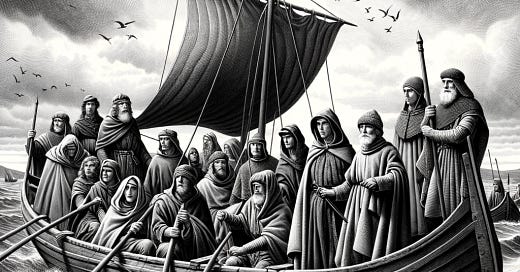Were the Scottish MacKenzies once the Irish Fitzgeralds
The Clan Mackenzie's origins, shrouded in the mists of Scottish history, are often traced to the enigmatic figure of Colin Fitzgerald. This saga intertwines with pivotal moments in Scottish history, merging myth with a touch of historical conjecture. The tale begins in the aftermath of the Battle of Hastings in 1066, where Colin's ancestor, Otho, is said to have fought alongside William the Conqueror. Otho, a warrior of renown, was reputedly honored with noble titles for his bravery. This connection purportedly links the Fitzgeralds to the noble lineages of England and Ireland, weaving a genealogical thread of valor and royalty.
Colin Fitzgerald: A Warrior in the Scottish Highlands The 13th century Scottish Highlands, a landscape of clashing clans and rallying cries, is where Colin Fitzgerald's legend takes root. Fleeing from his native Ireland, where his family wielded considerable influence, Colin sought refuge in Scotland. Welcomed by King Alexander III, Fitzgerald is said to have distinguished himself at the Battle of Largs in 1263, fighting valiantly against Norse invaders. As legend has it, his bravery and service to Scotland were rewarded with the grant of the lands of Kintail, marking the genesis of Clan Mackenzie's territorial dominance. This royal favor, as narrated in the legends, propelled the clan on a trajectory of power and prominence.
Fitzgerald’s Influence and the Battle of Largs The Battle of Largs holds a pivotal place in Scottish history and Colin Fitzgerald's role in it is often highlighted as a turning point. This conflict, part of the larger Norse-Scottish wars, was crucial in determining Scotland's sovereignty over the Hebrides and the Isle of Man. Fitzgerald's supposed involvement in this battle not only cements his status as a valiant warrior but also as a key player in shaping Scottish history.
Historical Scrutiny: Fact Versus Fiction However, upon closer examination, the Fitzgerald origin story of the Clan faces challenges. Historians and scholars, armed with extensive research, have raised significant doubts about this narrative. The romantic allure of the story struggles to align with the rigor of historical accuracy. The genealogical connections between the Irish Fitzgeralds and the Scottish Mackenzies appear tenuous at best. The timeline inconsistencies, the uncertainty surrounding key historical figures, and the lack of contemporary records cast a pall of doubt over this version of the clan's origins.
Furthermore, the Mackenzies' rise to power, marked by territorial expansion and strategic alliances, seems more credibly rooted in their Scottish heritage. Their ascent is likely influenced by alliances with influential Scottish dynasties, particularly the Earls of Ross. These connections suggest a narrative of the Mackenzies as a clan deeply ingrained in Gaelic culture, rising through martial prowess and astute matrimonial alliances.
The Clan's Gaelic Roots and Cultural Significance Delving deeper into the Mackenzie's Gaelic roots provides a richer understanding of their cultural and historical significance. The clan's integration into the fabric of Highland society and their participation in key historical events underscore their importance in Scottish history. The Mackenzies, through their Gaelic lineage, were not just participants but shapers of the cultural and political landscape of the Highlands.
The Legacy of Colin Fitzgerald: Between History and Legend In conclusion, the story of Colin Fitzgerald, as the founding figure of Clan Mackenzie, remains an integral part of Scottish folklore. Whether steeped in historical truth or the product of legend, it epitomizes the rich and varied tapestry of the clan's heritage. While the narrative may lack historical substantiation, it encapsulates themes of bravery, honor, and resilience synonymous with the Scottish Highland spirit. The true story of Colin Fitzgerald's connection to Clan Mackenzie may forever oscillate between the realms of history and legend, continuing to fascinate and intrigue generations to come.





